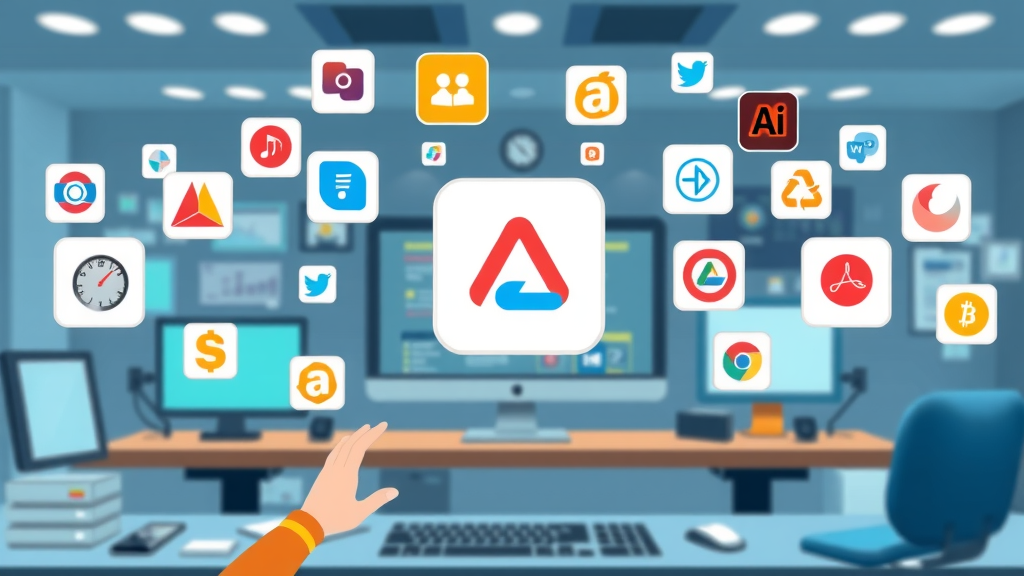Did you know that 80% of businesses using marketing automation platforms report a dramatic surge in leads? This isn’t just hype—it’s real transformation happening right now. If you’re ready to unlock explosive growth, redefine your lead generation, and outpace competitors, this ultimate guide will show you how to harness the full potential of marketing automation platforms .

marketing automation platforms: Transforming Lead Generation with Data-Driven Precision
- 80% of businesses using marketing automation platforms report increased leads—discover the unconventional tactics driving this surge.
- Learn how marketing automation software unlocks growth at every stage of the marketing campaign.
The marketing landscape is evolving at breakneck speed, and marketing automation platforms are at the heart of this revolution. These advanced solutions use AI-powered algorithms and real-time analytics to optimize every step of your marketing campaign . Picture a world where your marketing team spends less time on repetitive tasks and more on strategy, creativity, and revenue-driving initiatives. Marketing automation software isn't just for multinational giants—brands of all sizes report massive boosts in both lead quality and quantity.
What’s behind this uptick in marketing results? Innovative marketers deploy automation tools for everything from personalized email marketing and social media scheduling to dynamic website content and behavioral lead scoring. Their campaigns are smarter and more efficient, lightning-fast, and able to nurture leads with pinpoint accuracy across a wide range of marketing channels. All this, while your customer data is aggregated, organized, and activated for precision targeting. This is data-driven precision—and it’s available right now to maximize your leads.
How marketing automation platforms Enhance Marketing Campaigns and Boost ROI
Understanding automation software: Your Bridge to Effective Lead Nurturing

Effective lead nurturing is the backbone of a successful marketing campaign , and the right automation software acts as the perfect bridge. By automating follow-ups, drip campaigns, and personalized messages, your sales pipeline remains engaged—no lead is forgotten. This is possible through tools that learn from customer data , anticipate needs, and serve up the right message at the right time via email, push notifications, and even SMS. The result? Warm leads instead of cold prospects.
Compared to manual marketing tasks, automation allows for seamless scaling. Your marketing team can launch multi-step campaigns to nurture leads through each phase of the customer journey , all while tracking behavior and engagement. Not only does this strategy save time, but it elevates the customer experience —creating a truly personalized experience that boosts conversion rates and ensures your messaging never goes stale.
The core benefits of marketing automation tool adoption
"Marketing automation platforms have revolutionized our approach—our lead conversion rate improved by 42% in six months." – CMO, SaaS Industry
Adopting a robust marketing automation tool delivers tangible results: higher lead conversion rates, improved customer segmentation for targeting, and the ability to manage multiple marketing channels without losing focus. The automation of repetitive tasks frees up your team’s resources for developing innovative marketing strategies and driving growth.
What’s more, a wide range of automation features—like real-time reporting, campaign optimization, and dynamic customer journeys—provides actionable insights. By leveraging a unified automation platform, your business enjoys improved ROI, deeper engagement, and scalable growth without the overhead of a large marketing team . Now, your campaigns work smarter, not harder.
Key Features to Look for in marketing automation platforms

Advanced automation tools: Trigger-based workflows and dynamic content
The best marketing automation platforms stand out due to their advanced automation tools. Trigger-based workflows use real-time customer actions—like opening an email, visiting a landing page, or making a purchase—to kick off personalized sequences. This dynamic approach ensures tailored content is delivered when it matters most, maximizing open rates, conversions, and engagement.
Dynamic content personalization also lets you show different offers, images, or messages based on where a lead is in their customer journey . Modern platforms make it easy to automate complex, multi-step campaigns that mimic the intuition of your best salespeople—and never miss a beat. The result? More meaningful, relevant interactions that feel personal, not generic.
Integrated email marketing and multi-channel campaign management
Email marketing remains a pillar of digital outreach, but top automation platforms go further by blending email automation with social media, SMS, web chat, and push notifications. This multi-channel approach increases your reach and ensures prospects receive your message on their preferred platform.
A truly effective marketing automation tool will centralize these marketing channels in a single dashboard, making campaign management less chaotic and more impactful. Simple integration means your marketing team can launch coordinated cross-channel campaigns—all with unified analytics and reporting for real-time adjustments.
Analytics, reporting, and the data-driven automation platform
Insight-driven decision-making is core to successful marketing automation . Leading platforms deliver detailed analytics dashboards, tracking everything from campaign ROI to user engagement and conversion bottlenecks. Automated A/B testing, real-time reporting, and customizable KPIs enable your team to hone marketing strategy in a continuous improvement loop.
By integrating these analytics tools, your automation software becomes an indispensable decision-support system, unlocking growth with data-backed strategies. Businesses can visualize their entire funnel, spot trends, compare marketing tools , and measure the impact of every campaign, so nothing is left to guesswork.
marketing automation platforms vs. Traditional Methods: A Strategic Comparison
| Feature | marketing automation platforms | Traditional Marketing |
|---|---|---|
| Lead Scoring | AI-based, real-time | Manual, infrequent |
| Campaign Management | Automated, multi-touch | Single channel, manual |
| Personalization | Dynamic, data-driven | Broad, static |
Traditional marketing relies on batch-and-blast approaches—manual segmentation, periodic campaigns, and broad messaging. In contrast, modern marketing automation platforms leverage real-time data, automate repetitive marketing tasks, and deliver dynamic experiences across a wide range of marketing channels . The AI-powered automation platform adapts instantly, scales easily, and unleashes the potential of truly personalized campaigns.
The stats make the decision clear. Automated lead scoring pinpoints your hottest opportunities, while omnichannel campaign management ensures prospects aren't slipping through the cracks. This strategic advantage results in higher conversion, deeper customer engagement, and marketing campaigns tuned for maximum ROI.
Top 10 marketing automation platforms for Maximizing Leads in 2024
- HubSpot Marketing Automation Platform
- ActiveCampaign Marketing Automation Tool
- Marketo Automation Software
- Pardot Marketing Automation Software
- Mailchimp Automation Tools
- SharpSpring Marketing Automation Platform
- Keap Automation Software
- Sendinblue Email Marketing Automation
- Autopilot Automation Platform
- Act-On Automation Tools

Detailed Reviews: Best automation platform for Lead Nurturing
Among the leaders, HubSpot Marketing Automation Platform stands out for its ease of use, robust CRM integration, and a free plan for small businesses. ActiveCampaign delivers rich automation features and sophisticated segmentation, making it ideal for businesses looking to nurture leads with personalized experiences across a wide range of channels.
Marketo and Pardot remain favorites for enterprise-level analytics, advanced scoring, and seamless workflows for complex teams. Meanwhile, Mailchimp and Sendinblue empower agile marketing teams with cost-effective multichannel marketing and creative automation tools—even social media and SMS are integrated. Each of these marketing automation tools brings something unique to the table, fulfilling different business needs.
How To Choose the Right marketing automation platform for Your Business
Assessing automation tools based on your customer journey
No two businesses have identical customer journeys . The right automation tool should support your buyers’ paths from awareness to loyalty. Evaluate if the platform provides visual journey mapping, customizable triggers, and dynamic content delivery. This ensures that leads receive contextually relevant communication throughout their relationship with your brand.
Ask: Does the platform handle segmentation for different audience personas? Can it automate responses based on user behavior or touchpoint engagement? Choosing automation software that aligns with your marketing process gives your team the power to deliver a standout customer experience —the foundation of modern marketing success.
Evaluating scalability, integrations, and pricing of marketing automation software
As your business grows, so do your automation needs. A scalable marketing automation platform can expand with your team—from startup to enterprise—without missing a beat. Integration is equally critical; make sure the tool plays well with your CRM, analytics, e-commerce systems, and other marketing tools to avoid workflow silos.
Also, weigh pricing models carefully. Some platforms offer a free plan or tiered pricing to match your growth, while others bundle advanced features at higher costs. Review the platform’s demo, test usability, and verify support for API integrations. Matching these variables with your marketing team’s goals will drive long-term results.
Unlocking Customer Journey Insights with marketing automation platforms
Personalizing the customer experience via automation

Personalization is the new battleground for brand loyalty. Marketing automation platforms gather and analyze customer data in real time, allowing your campaigns to adapt instantly to each user’s preferences, actions, and buying habits. Tailored email marketing, customized landing pages, and dynamic offers are just the beginning.
When each lead receives a personalized experience at every stage—whether it’s a triggered welcome email or a perfectly timed product recommendation—engagement and satisfaction soar. Automated personalization ensures no opportunity is missed, creating a seamless journey that feels unique rather than automated.
Mapping and optimizing every touchpoint of your marketing campaign
Top automation platforms offer visual tools to map every contact point in your marketing campaign . From social media ads and email sequences to landing pages and post-sale follow-ups, automation software gives you the power to see and optimize each move your prospect makes.
By leveraging these maps, your marketing team can quickly spot bottlenecks, test new tactics, and refine automated workflows for maximum impact. Real-time analytics spotlight high-performing channels, while AI-based recommendations help you fine-tune messaging and nurture sequences—a win-win for both your team and your customers.
Case Study: Real-World Impact of marketing automation tools on Business Growth
How automation software increased qualified leads for a B2B SaaS company

A rapidly scaling B2B SaaS provider implemented a leading marketing automation platform as part of a broader marketing strategy . By automating lead scoring, email sequences, and personalized onboarding journeys, the company boosted qualified leads by over 65% within four months.
Their marketing team used automation to track engagement across web, email, and social media channels, identifying optimal conversion paths. The seamless handoff between marketing and sales teams—powered by real-time data and shared CRM integration—ensured no opportunity slipped through. This case underscores how the right automation platform converts more leads, shortens sales cycles, and fuels measurable business growth.
Key Integration Capabilities of marketing automation platforms
Connecting CRM and marketing automation platform for seamless workflows
Integration is no longer optional—it's essential. The best marketing automation platforms connect effortlessly with your CRM, syncing contacts, tracking interactions, and orchestrating end-to-end customer journeys. This unified data view empowers both sales and marketing teams, reducing friction and eliminating data silos.
With a connected workflow, your marketing team gains real-time insight into prospect activity, making it simple to trigger personalized follow-ups, escalate hot leads, and nurture ongoing relationships. This approach not only scales your campaigns but maximizes ROI from both your sales and marketing automation investments.
Linking automation platforms with analytics and ecommerce tools

Modern automation platforms extend integration beyond CRM: they connect to website analytics, e-commerce systems, customer service applications, and more. APIs and pre-built connectors let you pull in behavioral data, sales transactions, and support tickets, offering a complete view of every customer.
This integration means you can automate everything from abandoned cart emails and loyalty offers to upsell flows and customer feedback requests. Smart integrations allow your marketing team to create a cohesive, end-to-end automation ecosystem that drives real revenue, not just traffic.
Measuring Success: KPIs for Your marketing automation campaign
- Lead volume generated
- Conversion rates by channel
- Customer engagement scores
- Campaign ROI using automation software
To prove ROI, your marketing automation campaign should be tracked using clear, actionable KPIs. Start with basic metrics like lead volume and channel conversion rates, then advance to engagement scoring and full-funnel ROI analysis. Leading automation software provides detailed dashboards, letting you compare the performance of different marketing channels and rapidly spot areas for optimization.
Regular KPI reviews ensure your automation platform continually aligns with business goals and delivers consistent improvement. Smart marketers turn these insights into new workflows, better segmentation, and optimized experiences—outpacing competitors and driving sustainable growth.
Best Practices for Launching marketing automation platforms

Segmentation and targeting with automation tools
The foundation of all effective marketing automation tools is segmentation. Use detailed customer data to create targeted lists based on demographics, behaviors, and engagement scores. These targeted segments allow for precise message delivery, ensuring your content is never wasted on irrelevant prospects.
Automation features also enable dynamic segmentation—automatically moving leads between segments based on real-time interactions. Your marketing team will gain agility and maximize results, crafting campaigns that deliver a personalized experience for every audience segment.
Optimizing your marketing campaign with continuous automation
Launching your first automated campaign is just the beginning. The best marketing automation software supports continuous optimization: A/B testing subject lines, analyzing content engagement, tweaking workflows, and refining audience segments. Regular adjustments lead to small, compounding gains that supercharge your lead generation.
Your team should embrace a test-and-learn culture, using analytics and reporting features to spot successes and pivot quickly from underperforming tactics. This approach ensures your automated marketing campaigns stay ahead of the curve—responsive, relevant, and ROI-focused.
Common Mistakes to Avoid When Using marketing automation software
- Over-automating without personalization
- Ignoring email marketing deliverability
- Failing to align automation software with sales objectives
Many teams fall into the trap of “set it and forget it.” Over-automation without a personal touch can alienate prospects and erode brand trust. Likewise, skipping deliverability checks in email marketing means your beautifully crafted campaigns may never reach your audience.
It’s equally essential to align your automation strategy with sales goals—when sales and marketing share unified targets, results multiply. By sidestepping these common pitfalls, your marketing automation platform will drive results and foster sustainable growth.
People Also Ask: What is a marketing automation platforms?

Understanding the purpose and core functionalities of marketing automation platforms
A marketing automation platform is software designed to automate, streamline, and measure marketing workflows such as email campaigns, lead nurturing, social media scheduling, and more. It connects data, engagement, and communication across the entire customer journey for better results.
Core functionalities include audience segmentation, analytics dashboards, dynamic content automation, and multi-channel marketing management. Unlike traditional marketing tools, automation platforms learn and adapt—delivering personalized experiences and freeing teams from repetitive tasks.
People Also Ask: Which is the best marketing automation software?
Comparing top-rated marketing automation software and platforms
The best marketing automation software depends on your goals, scale, and marketing team’s needs. HubSpot leads with its robust CRM and generous free plan, while Marketo is favored for enterprise complexity. ActiveCampaign scores high for automation features, and Mailchimp excels with user-friendly design and email marketing prowess.
Consider a platform’s integration options, scalability, analytics tools, and customer support. Compare features and pricing to find your fit; most offer trials or demos so you can experience automation power firsthand.
People Also Ask: What is the difference between CRM and marketing automation platform?
How CRM and automation platform solutions complement each other for holistic campaigns
While a CRM (Customer Relationship Management) tracks and manages relationships, a marketing automation platform manages campaigns and communications. Integrated together, they close the loop—using shared customer data to trigger timely outreach, nurture leads, and align sales and marketing for a 360-degree view.
This pairing enables seamless handoffs, contextual messaging, and a connected customer journey, delivering higher conversion rates and improved customer service.
People Also Ask: What is the best automation platform?
Evaluating automation platforms for feature richness and performance
The “best” automation platform is the one that provides the richest features relevant to your business, including advanced workflow automation, deep integrations, scalability, and best-in-class analytics. Assess performance by requesting demos, reading customer reviews, and checking if the vendor offers custom support.
Always factor in future growth—can the tool expand with your needs without costly upgrades or migrations? A scalable, flexible platform is often the wisest long-term investment.
FAQs
- How do marketing automation tools improve marketing ROI? Marketing automation tools increase ROI by automating repetitive tasks, enabling personalized engagement, and providing data-driven insights to quickly optimize campaigns.
- What is the typical investment in automation software? Pricing varies—options range from free plans with limited features to enterprise solutions costing thousands per month, depending on scale and complexity.
- Can small businesses benefit from marketing automation platforms? Absolutely! Many platforms offer free or affordable tiers, making sophisticated marketing automation accessible for startups and SMBs.
- Are marketing automation tools secure for sensitive data? Leading automation vendors prioritize security with regular updates, encryption, and compliance, ensuring your customer data remains protected.
- Do automation platforms support omnichannel marketing? Yes, most top platforms unify messaging across email, social, SMS, web, and more—enabling seamless, integrated campaigns.
Expert Insights: The Future of marketing automation platforms
"The evolution of automation platforms is driven by AI and hyper-personalization—businesses not adopting these solutions risk falling behind." – Marketing Technology Analyst

AI-driven personalization, predictive analytics, and real-time campaign optimization are set to reshape the next wave of marketing automation. Forward-thinking businesses are preparing now—don’t let your brand be left behind.
Step-by-Step Guide: Implementing marketing automation platforms in Your Marketing Campaign
Setting up your automation platform for quick wins
Start by mapping your existing customer journeys and pinpointing repetitive tasks ripe for automation. Next, deploy a free plan or demo environment to test features and build your first workflow—whether that’s a drip email series, automated lead scoring, or dynamic website content. Launch quick-win campaigns and monitor initial KPIs for real-time feedback.
Iterate quickly: gather feedback from your marketing team , monitor analytics, and make small improvements before rolling out complex, multi-channel campaigns. Establish clear success criteria to measure impact and celebrate early wins.
Training your marketing team on new marketing automation tool features
Comprehensive team training is essential for extracting maximum value from your new platform. Enroll your team in vendor-led webinars, explore resource libraries, and conduct in-house workshops on automation best practices. Encourage experimentation with advanced automation features, reporting, and integrations to build confidence and uncover new growth opportunities.
A well-trained team will continuously optimize and innovate, turning your marketing automation platform into the cornerstone for scalable, high-performing campaigns.
Video: Overview of Leading marketing automation platforms
Video: How to Maximize Lead Generation with marketing automation software
Video: Comparing marketing automation platforms—A Buyer’s Guide
The Ultimate marketing automation platforms Checklist for 2024
- Feature and integration audit
- Compliance and data security review
- Usability and training assessment
- Reporting and analytics comparison
Regularly run through this checklist before choosing, upgrading, or switching marketing automation software to guarantee your investment pays long-term dividends.
Maximize Your Leads with Our Recommended marketing automation platform—Get Started Today
- Request a free demo of the top marketing automation tools
- Download our in-depth marketing automation software comparison guide
- Sign up now for exclusive discounts on automation software subscriptions
Take action now: Try a free demo, download our actionable comparison guide, or claim special savings—start maximizing your leads with the right marketing automation platform today.
Ready to supercharge your lead generation? Start with a top marketing automation platform: book a demo, review the checklist, and empower your team for fast, sustained growth!
To further enhance your understanding of marketing automation platforms and their impact on lead generation, consider exploring the following resources:
-
“The 10 Best Marketing Automation Software for 2024” : This article provides an in-depth analysis of top marketing automation tools, detailing their features, pricing, and suitability for various business sizes. It’s an excellent resource for comparing platforms like HubSpot, Marketo, and ActiveCampaign to determine which aligns best with your business needs. ( brevo.com )
-
“5 Great Marketing Automation Platforms” : This piece offers a concise overview of five leading marketing automation platforms, highlighting their unique features and benefits. It serves as a quick reference to understand the strengths of platforms such as Marketo, Salesforce Marketing Cloud, and HubSpot Marketing Automation. ( outbrain.com )
If you’re serious about maximizing your leads through marketing automation, these resources will provide valuable insights to help you select and implement the right platform for your business.
 Add Row
Add Row  Add
Add 






Write A Comment